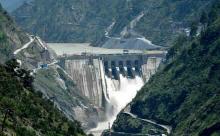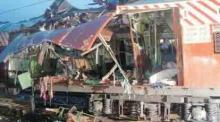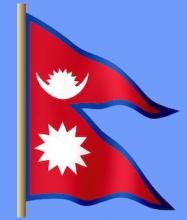-

In the era of aggressive globalization, block politics hardly matters. However, economic integration, free trade, GDP growth, and connectivity through infrastructure development do matter most to the international system. Where all the leaders have failed to forge regional cooperation during the 22 years of the South Asian Association for Regional Cooperation (SAARC) existence, International Financial Institutions (IFIs) like the World Bank (WB) and the Asian Development Bank (ADB) have rekindled hope in SAARC to become relevant, although economically.
-

Over the last couple of years, Islamic terror-related issues have been escalating in southern and western parts of India. Terrorist outfits are not only targeting security forces and government establishments but aiming at vital economic and strategic assets.
-

Since decades, the Andhra Pradesh (AP) government has been trying hard to unearth the vast bauxite reserves in the Eastern Ghats despite campaigns and protests from the tribal community. The tribal communities believe that bauxite mining would not only render thousands of tribal people homeless, but it would also sound the death knell for the community's cultural diversity and the endemic biodiversity of the Eastern Ghats. Instead, the state government is hurrying to sign agreements with private firms for bauxite mining.
-

With a slice of more than 15 percent of the global aerospace market – both civil and military, currently estimated to be over $ 300 billion per annum with a near double digit projected growth over the next ten years, it is no surprise that the Bangalore Aero-India show has not only attracted gorillas like the Boeing, Lockheed, BAe (British Aerospace) or the European major EADS but also offered opportunities for aerospace chimpanzees (mid-sized companies like Embraer, Israeli Aircraft Industry) as well as marmosets (like HAL).
-

After assuming office late last year, Admiral Sureesh Mehta, the Indian Navy chief made his maiden visit to UAE. At Abu Dhabi, he described West Asia as part of India's ‘strategic neighborhood’ and highlighted the importance of a regional security forum comprising of Persian Gulf littoral states modeled on the lines of the Western Pacific Naval Symposium (WPNS) where India has an observer status. The Admiral also called for greater bilateral naval engagements between Indian and UAE maritime forces.
-

There has been much ado over the neutral expert’s verdict on the Baglihar Hydel Project (BHP). For over sixteen years, the 450 Mega Watt (MW) BHP on the Chenab River in the Doda district of Jammu and Kashmir has been the bone of contention between India and Pakistan. After holding five meetings – in Paris, Geneva, London, Paris & Washington; visiting the project site, including its hydraulic model at Roorkee University and examining the written and oral submissions made by both parties, the final report of the neutral expert has given the BHP the ‘go ahead’.
-

At least 67 people have died, and many sustained burn injuries in the fire triggered by bomb blasts in Delhi- Attari Samjhauta Express on February 18, near Deewana in Panipat in Haryana. The bi-weekly train means 'Understanding,' a symbol of friendship that connects New Delhi to Pakistan's city of Lahore. The attacks took place ahead of Pakistani Foreign Minister Khursheed Kasuri’s visit to New Delhi for talks with his Indian counterpart on Tuesday. Kasuri is scheduled to co-chair the India-Pak Joint Commission in New Delhi.
-

Providing access to safe drinking water to all is being the prime target of each country’s development goal as prescribes by the Millennium Development Goals (MDGs). The contentious issue is who will provide this basic service- public or private.
-

More than a decade after the opening of India, the Special Economic Zone (SEZ) probably has become the most controversial economic reform announced recently. While some consider it India’s supersonic engine of growth, others severely criticize it as the latest land grab instrument in the hands of the industrialists. Serious discourses on development models, displacement and rehabilitation, employment generation, foreign investment, and the primacy of industry over agriculture are being raised in justification and against the whole concept of SEZ.
-

Democracy is the most widely admired political system, but perhaps the most difficult to maintain. Democracy begins with excellent objectives in human governance with unquestionable intensions to impart freedom from injustice and social exclusion. It is characterised as a system in which expectations are raised because people identify themselves with the polity. There has been a greater urge for opening up the space for participation and competition in a state like Nepal which had a long history of monarchical domination.
Paxton ported to drupal by DropThemes.in